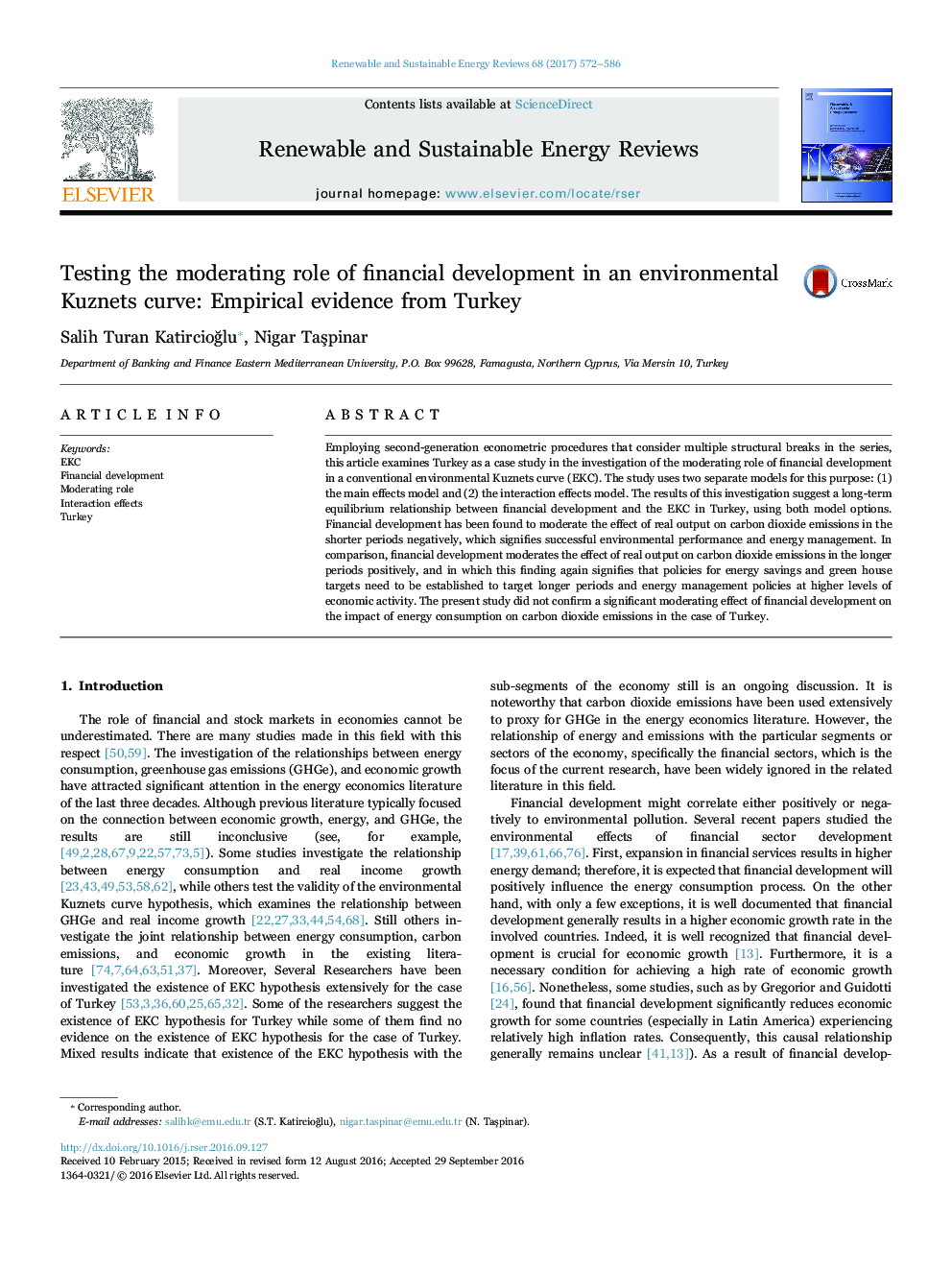| Article ID | Journal | Published Year | Pages | File Type |
|---|---|---|---|---|
| 5482691 | Renewable and Sustainable Energy Reviews | 2017 | 15 Pages |
Abstract
Employing second-generation econometric procedures that consider multiple structural breaks in the series, this article examines Turkey as a case study in the investigation of the moderating role of financial development in a conventional environmental Kuznets curve (EKC). The study uses two separate models for this purpose: (1) the main effects model and (2) the interaction effects model. The results of this investigation suggest a long-term equilibrium relationship between financial development and the EKC in Turkey, using both model options. Financial development has been found to moderate the effect of real output on carbon dioxide emissions in the shorter periods negatively, which signifies successful environmental performance and energy management. In comparison, financial development moderates the effect of real output on carbon dioxide emissions in the longer periods positively, and in which this finding again signifies that policies for energy savings and green house targets need to be established to target longer periods and energy management policies at higher levels of economic activity. The present study did not confirm a significant moderating effect of financial development on the impact of energy consumption on carbon dioxide emissions in the case of Turkey.
Related Topics
Physical Sciences and Engineering
Energy
Renewable Energy, Sustainability and the Environment
Authors
Salih Turan KatircioÄlu, Nigar TaÅpinar,
